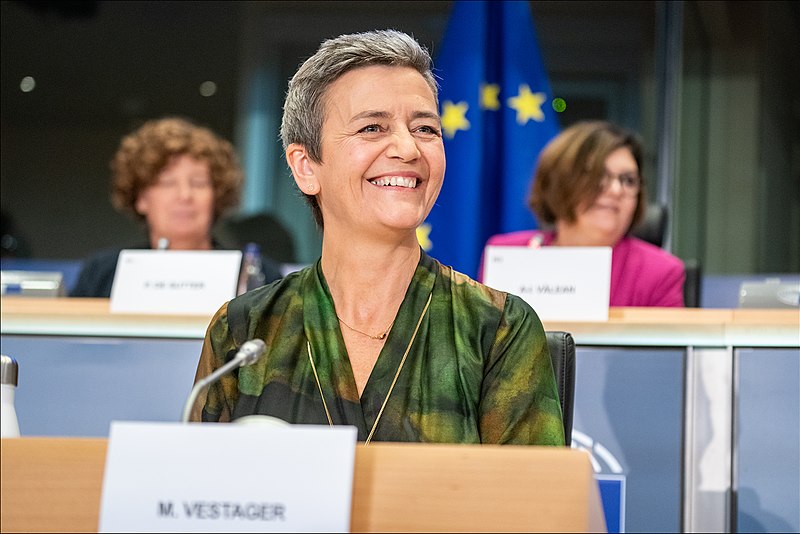
The European Commission has opened an in-depth investigation to assess the proposed acquisition of OMV Slovenija by MOL under the EU Merger Regulation.
The Commission is concerned that the proposed transaction may reduce competition in the retail motor fuel markets in Slovenia.
Executive Vice-President Margrethe Vestager, responsible for competition policy, said: “To ensure that fuel prices at the pump are not artificially inflated by lack of competition, we need to keep a close eye on consolidation. OMV Slovenija and MOL are two of the leading fuel suppliers in Slovenia which compete head-to-head in many local areas. We need to carefully assess whether the changes in the competitive landscape prompted by the proposed acquisition would have an impact on prices or the quality of services.”
MOL and OMV Slovenija are, respectively, the third and second largest fuel suppliers in Slovenia after Petrol, the partially state-owned incumbent. By acquiring OMV Slovenija, MOL would hold high market shares in the fuel retail markets and, together with Petrol, they would hold a very large share of the market. All other competitors are significantly smaller and unlikely to pose any significant competitive constraint on MOL or Petrol after the transaction.
The Commission's preliminary concerns
At this stage, the Commission is concerned that the transaction may significantly reduce competition in the retail supply of motor fuels (gasoline and diesel) to individuals and businesses in Slovenia.
The Commission's preliminary investigation shows that the parties compete head-to-head in many local areas throughout Slovenia. The transaction would thus remove the main competitive constraint that MOL and Petrol currently face in the market. In addition, the market is very transparent and the transaction could facilitate coordination between MOL and Petrol.
Furthermore, relatively high barriers to entry and expansion, such as the cost to set up a network of petrol stations, regulatory constraints and the scarcity of attractive locations, characterise the retail supply of motor fuels in Slovenia. In addition, new entry seems unlikely on any significant scale in the short to medium run.
The Commission will now carry out an in-depth investigation into the effects of the transaction to determine whether it is likely to significantly reduce effective competition.
The transaction was notified to the Commission on 13 May 2022. MOL decided not to submit commitments during the initial investigation to address the Commission's preliminary concerns. The Commission now has 90 working days, until 28 October 2022, to take a decision. The opening of an in-depth investigation does not prejudge the outcome of the investigation.
Companies and products
MOL Hungarian Oil and Gas Plc (‘MOL'), headquartered in Hungary, is the parent company of the MOL Group, an integrated oil and gas group whose principal activities are the exploration, production and refining of crude oil, the distribution of refined oil products,. On the retail level, MOL Group has a network of ca. 2,000 fuel stations in nine countries (Hungary, Romania, Republic of Serbia, Montenegro, Republic of Bosnia-Herzegovina, Republic of Croatia, Republic of Slovenia, Czech Republic and Slovakia). In Slovenia, MOL operates 53 fuel stations offering a range of standard and premium fuels and various other ancillary products and services.
OMV Slovenija Trgovina Z Nafto In Naftnimi Derivati, D.O.O. (‘OMV Slovenija'), headquartered in Slovenia, is active in the retail sale of motor fuel via its network of 119 fuel stations. OMV Slovenija's fuel stations offer a range of standard and premium fuels, automotive LPG, LPG cylinder, heating oil and various ancillary products and services. OMV Slovenija is also active on the fuel wholesale markets, supplying some customers in Slovenia and Croatia, as well as in the wholesale supply of bitumen and heating oil.
Merger control and procedure
The Commission has the duty to assess mergers and acquisitions involving companies with a turnover above certain thresholds (see Article 1 of the Merger Regulation) and to prevent concentrations that would significantly impede effective competition in the European Economic Area or any substantial part of it.
The vast majority of notified mergers do not pose competition problems and are cleared after a routine review. From the moment a transaction is notified, the Commission generally has 25 working days to decide whether to grant approval (Phase I) or to start an in-depth investigation (Phase II).
In addition to the current transaction, there are currently two on-going Phase II merger investigations: the proposed acquisition of Pfleiderer Polska by Kronospan and the proposed acquisition of GRAIL by Illumina.
More information will be available on the Commission's competition website, in the Commission's public case register under the case number M.10438. Photo by European Parliament from EU, Wikimedia commons.



































